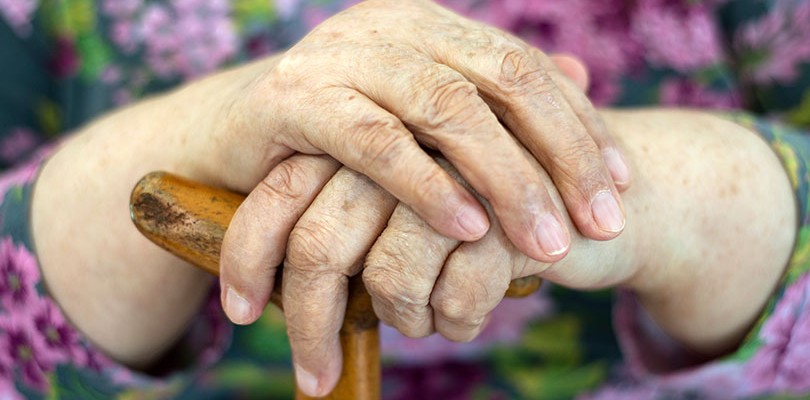
Photo Credit: monkeybusinessimages / istockphoto.com
Misconceptions About Arthritis
Arthritis is an uncomfortable condition, there’s no doubt about it. It’s also a mysterious disease, one that takes hundreds of forms, hits at unpredictable times, and attacks your body in a variety of ways.
Before you can restore some joint comfort and function, you need to know exactly how arthritis acts and reacts in your body. Whether chronic inflammation or cartilage disintegration is your main problem, the first point to remember is that there is plenty you can do to help your body withstand the effects of arthritis. Once you dispel these misconceptions about arthritis, you can get on track to better treatment.
1. Only the Elderly Develop Arthritis
This is perhaps the most common misconception about arthritis. While it’s true that most osteoarthritis (OA) patients are over 60, there are other types of arthritis that tend to target younger bodies.
Rheumatoid arthritis (RA) often appears closer to age 40, but could certainly show up earlier in life. Juvenile arthritis, as its name suggests, is a term used to describe the range of autoimmune and inflammatory conditions in the joints that affect children younger than 16. However, even OA can strike decades earlier than you might expect, if joints have suffered a lot of strain.

Photo Credit: Feverpitched / istockphoto.com
2. Arthritis Is a Natural Part of Aging
Although arthritis is one of the most common medical conditions in the world, it isn’t an inevitability. While joints will probably experience some wear and tear over the years, making changes to improve your joint health now can make for an arthritis-free future.
Genetics have a role to play in your chances of developing arthritis (especially forms like RA and psoriatic arthritis), but your lifestyle choices have at least as much influence as your family history. Being overweight stresses the joints a lot, as will a job or hobby that involves repetitive movements. It follows that maintaining a healthy weight and avoiding repetitive strain will protect your joints and lower your arthritis risk.

Photo Credit: hxdbzxy / istockphoto.com
3. Arthritis Is Painful, but Not Serious
It may not be in the same class as dire chronic diseases like cancer, but don’t underestimate the serious problems that arthritis can bring. In fact, arthritis is the leading cause of disability in America, and each year it’s responsible for over 44 million visits to the doctor.
Left untreated, OA can permanently damage your joints and severely impair their function; RA and psoriatic arthritis can begin to harm other sites of your body as well, including your organs and cardiovascular system, if you don’t manage the disease progression with the proper treatment.

Photo Credit: monkeybusinessimages / istockphoto.com
4. Exercise Inflames Arthritis
It may seem like a good idea to reduce your level of activity when your arthritis is acting up, but resistance and endurance exercises can actually help relieve the discomfort and prevent joint damage.
Regular exercise builds muscle, and the stronger your muscles around weight bearing joints (like hips and knees), the more support that have to manage your movements. Exercise is also the best way to lose weight and keep it off — a very important part of reducing the strain on your joints, since each pound of weight lost removes four pounds of pressure from your knees.
Have you ever wondered: does cracking your knuckles cause arthritis? In short, no, but it can make arthritis symptoms worse.

Photo Credit: ozgurkeser / istockphoto.com
5. Rheumatoid Arthritis Will Eventually Cripple You
If you avoid treatment, RA can cause irreversible damage in your joints, and you may struggle with severe symptoms on a daily basis. On the other hand, there’s a range of targeted medications designed to relieve the inflammation, quiet the autoimmune response, and protect your joints from further damage.
Arthritis is notoriously unpredictable: sometimes you’ll wake up in agony, and other days you may feel like you could run a marathon. However, since RA is a progressive disease, it’s important to stick to your daily medication regimen, no matter how good you feel. If you’re noticing more bad days than normal, don’t ignore it or simply suffer through your symptoms – see your doctor to assess your treatment plan, and decide if it’s time for an adjustment.

Photo Credit: MarianVejcik / istockphoto.com
6. Certain Foods Help or Hurt Arthritis
You may have heard that cider vinegar, rum-soaked raisins, or a raw food diet can help ease your arthritis symptoms, or that dairy and nightshade veggies worsen joint inflammation. However, these claims have no basis and a drastic change in the balance and structure of your diet could be a bad idea.
The wider the array of nutrients, antioxidants, and other natural health-boosting compounds in your diet, the better your body will be able to heal and protect itself. From a stronger immune system to faster healing, the list of benefits is long. However, food allergies can manifest in different ways, including physical pain; if you find that your body recoils from a certain ingredient, you might want to get an allergy test.

Photo Credit: monkeybusinessimages / istockphoto.com
7. Cold and Damp Weather Trigger Arthritis
Have you ever had someone swear a storm was coming based on their knee pain? It’s a common misunderstanding that bad weather brings arthritis pain. In reality, a cold and wet climate does not cause arthritis, nor does a warm climate cure it for good.
This myth is a stubborn one, perhaps because temperature can indeed effect the joints. Treating a sore joint with heat can bring relief, and some people insist that moving to a warm, dry climate has made a world of a difference. However, these improvements could be explained by an active lifestyle: when the weather is nice and comfortable, you’re much more likely to stay active, and regular exercise is one of the best ways to improve arthritis symptoms and prognosis.

Photo Credit: AndreyPopov / istockphoto.com
8. Arthritis Can Be Cured
There are ways to reduce the effects and health risks of the disease, but there is no known cure for arthritis. The good news is that medical research continues to focus on better arthritis treatments, and there could be more big advances on the horizon.
Prognosis varies according to the type of arthritis, but in general, the condition is life-long and progressive. It’s therefore very important to understand your disease as best you can and work with your doctor, rheumatologist, and perhaps a nutritionist to get on the right track to healthier, happier joints.
There’s always more to learn about your health, so don’t put your arthritis out of your mind. The better you can learn to listen to your body, compensate for your condition, and accept help without forfeiting your independence, the more you can flourish in spite of your arthritis.
Read more about joint deformity with osteoarthritis over at NewLifeOutlook.
A proper psoriatic arthritis diet can prevent flare-ups. Here are the best and worst foods to eat, and lifestyle changes to make.








